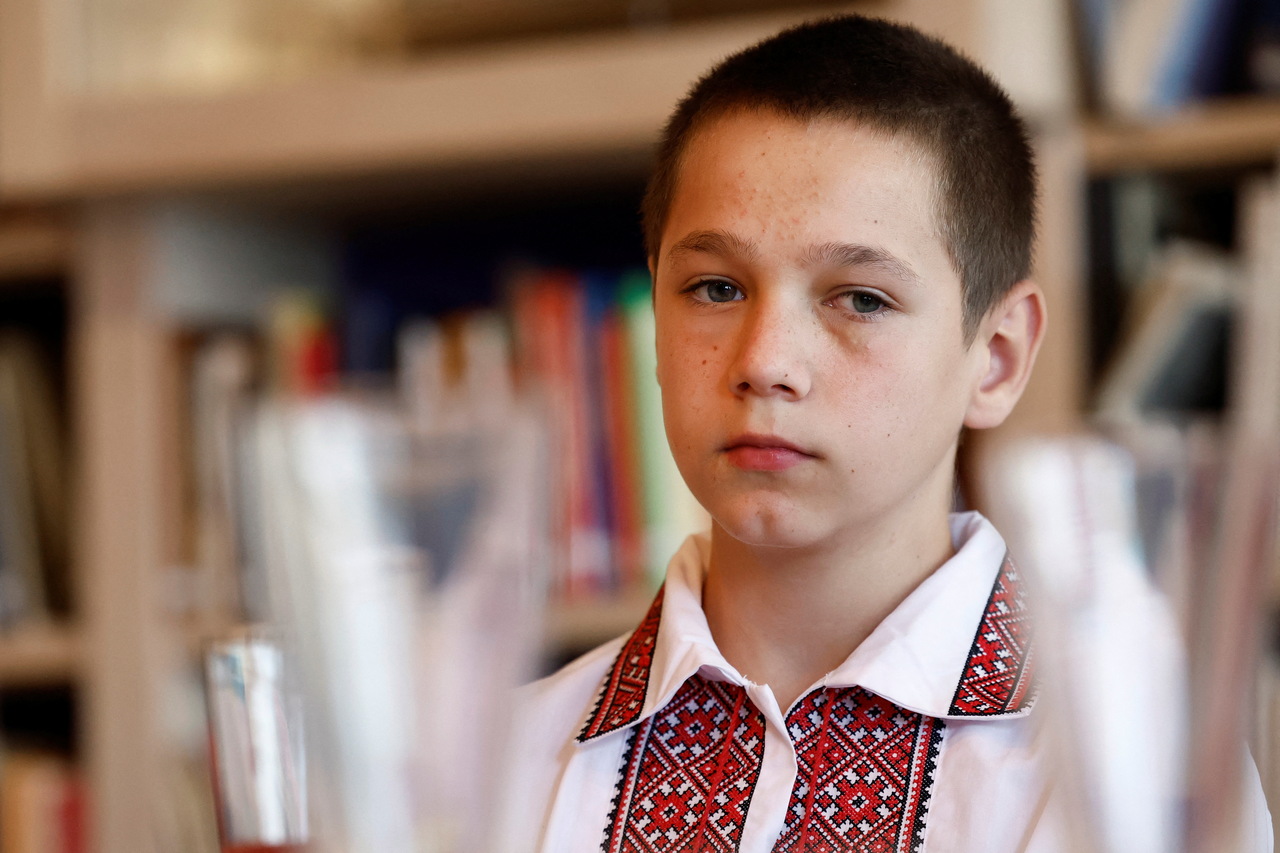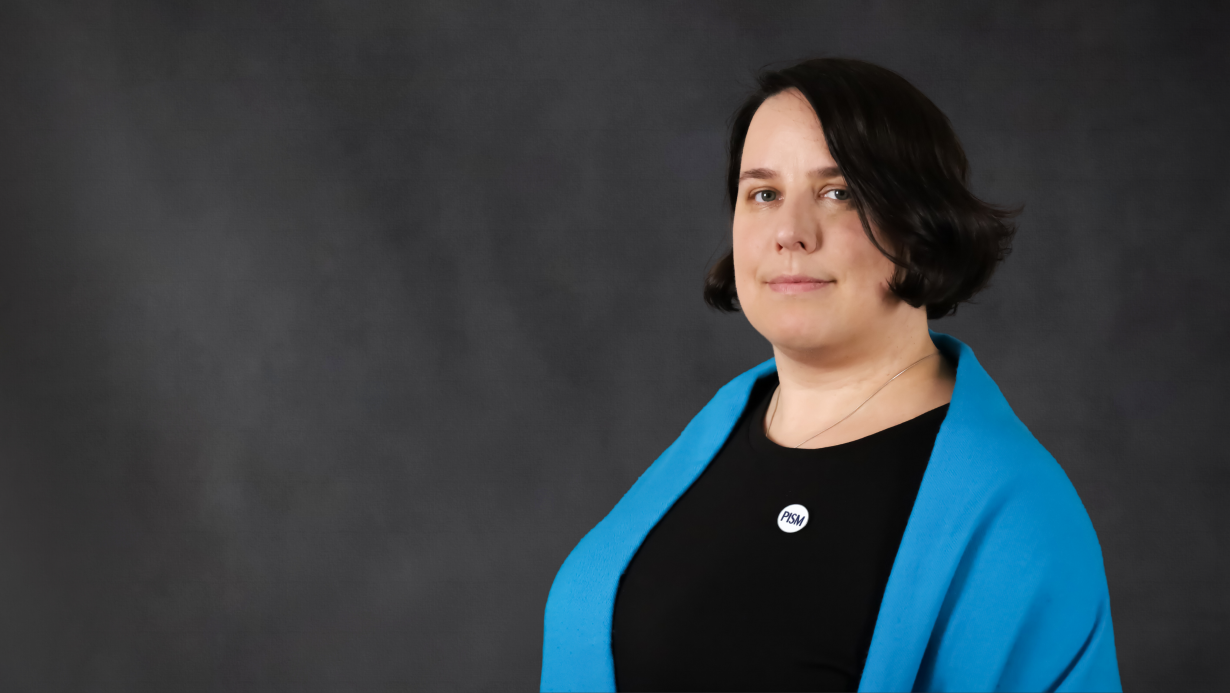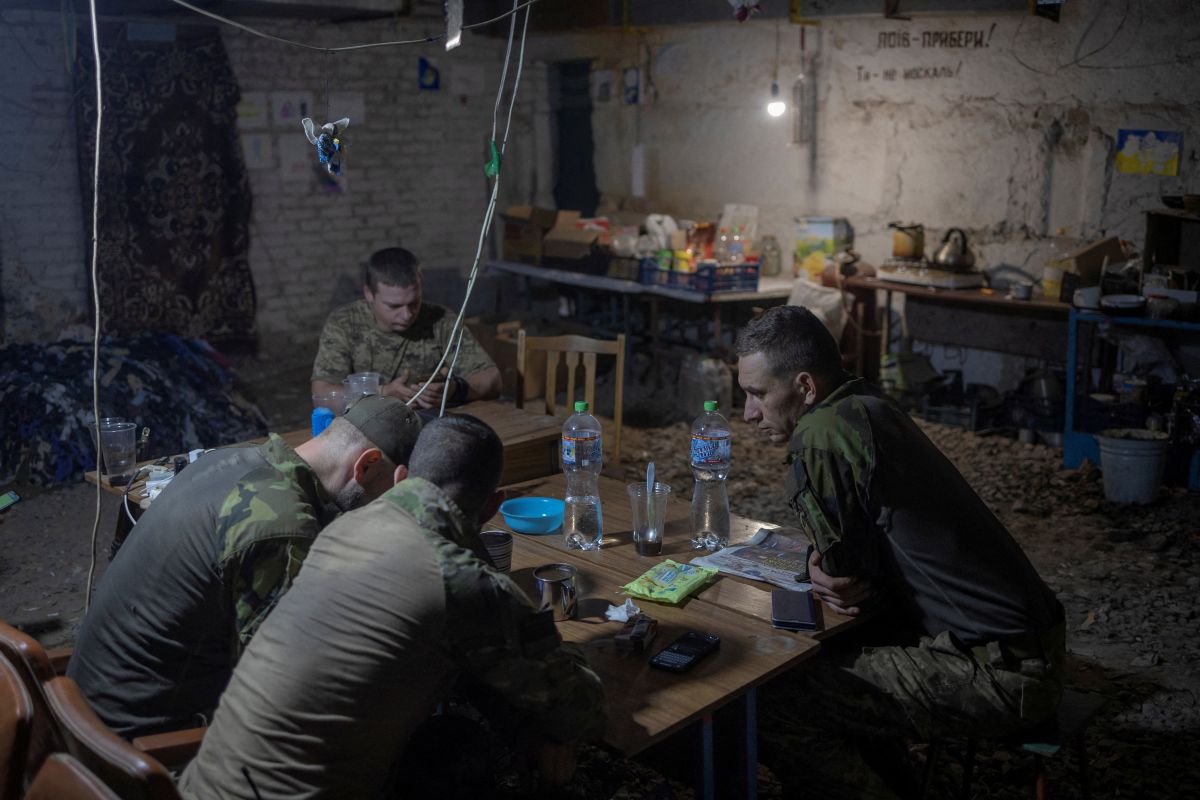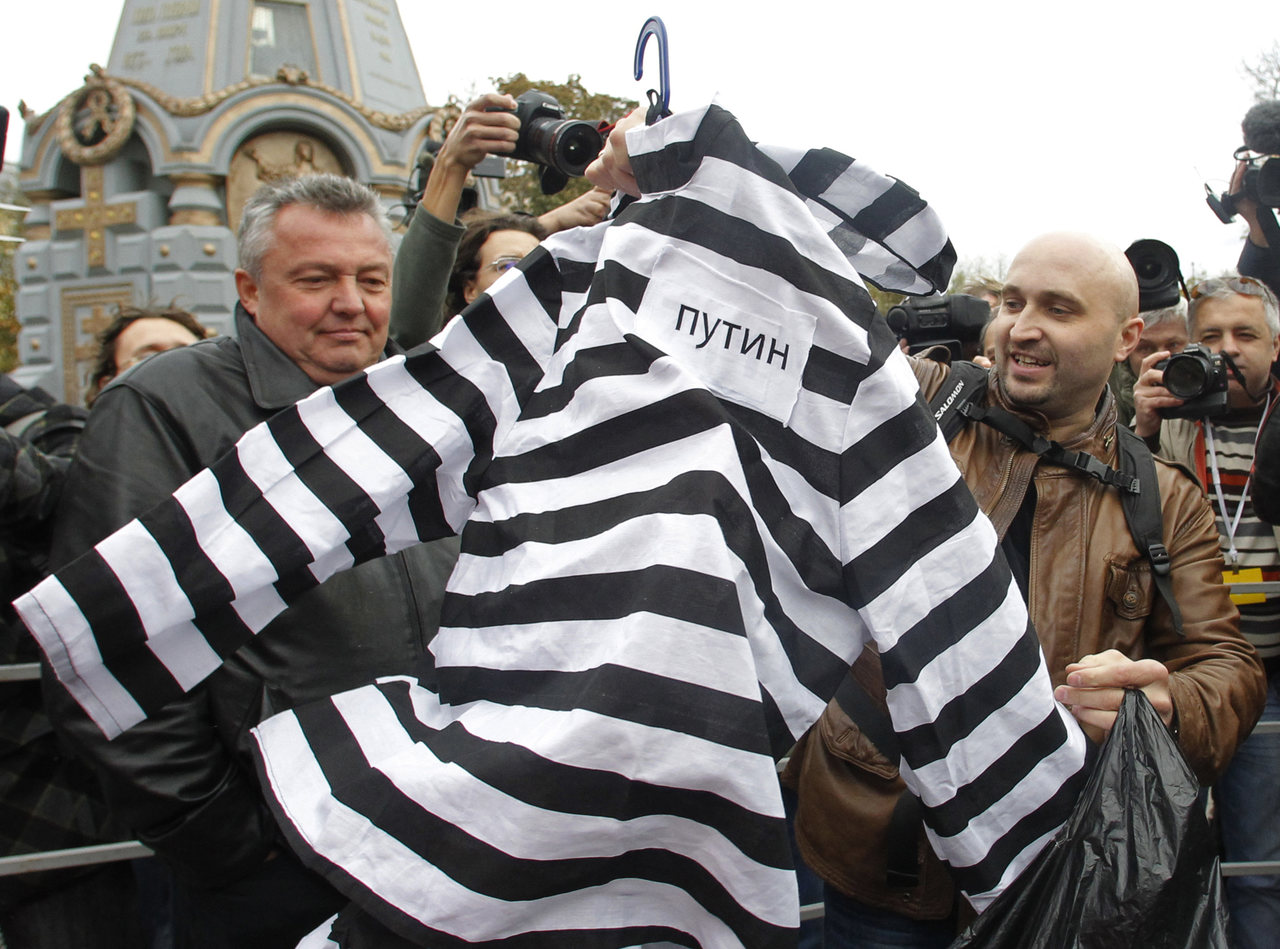Russia Continues to Illegally Transfer Ukrainian Children
Since the beginning of the war, Russia has been deporting Ukrainian children from the occupied territories of Ukraine and pursuing a policy of denationalisation against them. This criminal activity is part of Russia’s attempt to destroy the Ukrainian nation. The Ukrainian authorities have limited capacity to ensure the return of their youngest citizens to Ukraine and therefore need the support of third countries in this process.
 PIROSCHKA VAN DE WOUW / Reuters / Forum
PIROSCHKA VAN DE WOUW / Reuters / Forum
According to Ukrainian data, since February 2022 Russia has deported 19,546 children from the occupied territories. So far, by various means, mainly through the efforts of guardians, only 387 of them have been brought back to Ukraine. The number of abducted children is likely to be much higher, as the data only includes documented cases, mostly through reports from relatives and guardians. In statements by Russian representatives, there are estimates of up to 744,000 minors removed to its territory, but this figure is not verifiable. Most likely, it also includes children who arrived on Russian territory after the start of the full-scale war, together with their guardians, both voluntarily and as part of forced resettlement, and were not separated from them. At the same time, Russia prevents access to information about deported persons, both to the Ukrainian authorities and international organisations such as the International Committee of the Red Cross and UNICEF. The deportation and russification of Ukrainian children is a violation of Article II of the UN Convention on the Prevention and Punishment of the Crime of Genocide of 9 December 1948. They also constitute violations of international humanitarian law and are classified as a war crime. They are also violations of the Convention on the Rights of the Child and the right to privacy and family life contained in the International Covenant on Civil and Political Rights, among others.
Deportation Mechanism
The process of the illegal deportation of children involves removing them from occupied southeastern Ukraine to the territory of Russia. The category particularly vulnerable to deportation includes orphans and children deprived of parental care, who were in collective foster care or family orphanages or health institutions. However, the process also includes minors with parents or guardians with whom they are separated, including during “filtration” (a process of interrogation and sometimes torture of Ukrainian residents). Mostly, the deportation of the youngest Ukrainians takes place under the pretext of “evacuation” or the organisation of summer holidays for young people. The children are then transferred via successive reception centres to special facilities in the hinterlands of Russia, including remote regions such as Sakhalin or Dagestan. Some are transferred several times between facilities. This is aimed at destroying ties and accelerating the process of russification, as well as making it more difficult to locate Ukrainian children whose parents or guardians are looking for them from their homeland.
School-age children are enrolled in Russian educational institutions and are taught according to Russian curricula. They are subjected to indoctrination under a “patriotic education” programme that spreads anti-Ukrainian propaganda. The procedure of kidnapping and deporting Ukrainian children is centrally managed, headed by Maria Lvova-Belova, the Russian commissioner for children’s rights in the office of the Russian president. According to information provided by National Anti-Crisis Management (an organisation of the Belarusian opposition), similar “camps” are also located on the territory of Belarus, where at least 2,100 children from Ukraine were accommodated until May 2023.
Some of the deported children are granted Russian citizenship. On 30 May 2022, Vladimir Putin signed a decree that simplified the adoption procedure for orphans and children deprived of parental care. Not only are minors given new citizenship but also they are often issued false documents where their personal details are changed. The exact number of children who have already gone through the adoption process is unknown. Dmytro Lubinets, Ukrainian Parliament Commissioner for Human Rights, stated at the beginning of September 2023 that the Ukrainian side has information about 386 such cases. Lvova-Belova herself, at a press conference in October 2022, boasted about the adoption of a boy deported from Mariupol.
Actions Taken by Ukraine
A key problem in bringing Ukrainian children into the country is the lack of reliable information on their fate and the inability to identify them. Due to the complexity of the situation, it is difficult to adopt a single mechanism for the return of deported minors from Russia, and each case is individual in nature. So far, it has been mainly due to the efforts of the next of kin, who were able to go to Russia to collect them. Due to the ongoing war, this usually required travelling via Poland and the Baltic States or Belarus. After crossing the Russian border, the parents or guardians often had to undergo an interrogation process.
In order to coordinate the return of abducted children and their subsequent reintegration into society, the Ukrainian authorities developed the Bring Kids Back UA special action plan. As part of it, The Child Rights Protection Centre was established. There is also a unified register of abducted children called “Children of War”, which is coordinated by the National Information Office. This agency became operational on 17 March 2022 and reports to the Ministry of Reintegration of Temporarily Occupied Territories of Ukraine. The agency’s task is to collect data on Ukrainians who were killed or are prisoners of war, missing, or unlawfully detained by the occupying forces (including civilians). In addition, an international DNA database based on samples taken from the relatives of deported children in order to facilitate the search for their families in the future is planned.
International Response and Involvement of Third Countries
A number of international institutions have been involved in the investigation of the deportation of children, including the UN through the Independent International Commission of Inquiry in Ukraine, which confirmed the existence of the Russian practice in March 2023. The deportation of children has been condemned by, among others, the Council of Europe's Commissioner for Human Rights and the United Nations High Commissioner for Refugees. In addition, the International Criminal Court (ICC) has issued arrest warrants for Putin and Lvova-Belova. Both are suspected by the ICC Prosecutor’s Office of committing war crimes related to, among other things, the deportation of children.
Ukraine, which currently has no representation in Russia following the severance of diplomatic relations, needs support from third countries in recovering the children. Qatar accepted this role at Ukraine’s request as of October 2023. So far, at least five children have been successfully returned through Qatar.
Perspectives
Russia is consciously pursuing a criminal policy of naturalising the youngest Ukrainians, as evidenced by both the level of organisation of the process and the number of deportation cases. The Russian authorities make no secret of this practice. They present it in pro-government propaganda as a defence of children and a pro-family policy. It is also part of the legitimisation of military action in Ukraine against its own people and fits in with the Russian thesis that Ukrainians are not a separate nation. Such action is in line with the imperialist Russian policy of colonialism, to which Russian foreign policy is subordinated.
Regardless of the further course of the war, the return of Ukrainian children will be difficult and lengthy (in the case of the youngest). With little scope for action on Russian territory, the involvement of the international community through continued pressure on Russia will be crucial. The return of the youngest should be an element of any potential agreements in this state. The Polish authorities could support Ukraine in the recovery of children by, for example, creating a fund to facilitate parents or guardians to travel to Russia to collect their child from an institution, especially as the route most often leads through Poland and the Baltic States. Additionally, Poland can take initiatives in UN agencies, primarily through the United Nations Children's Fund (UNICEF), where a Polish representative was elected as a vice president of the Executive Board. The UN Committee on the Rights of the Child could also play a role. As a body that monitors states’ compliance with the provisions of the Convention on the Rights of the Child, it should draw attention to violations by Russia, which is a party to the Convention. It is also important to extend sanctions to those responsible for the deportation process at the level of the regions—the local governors and the so-called Ombudspersons for Children, who are often intermediaries in the deportations. Poland could approach the ICC with a proposal to subject these individuals to an international arrest warrant.




